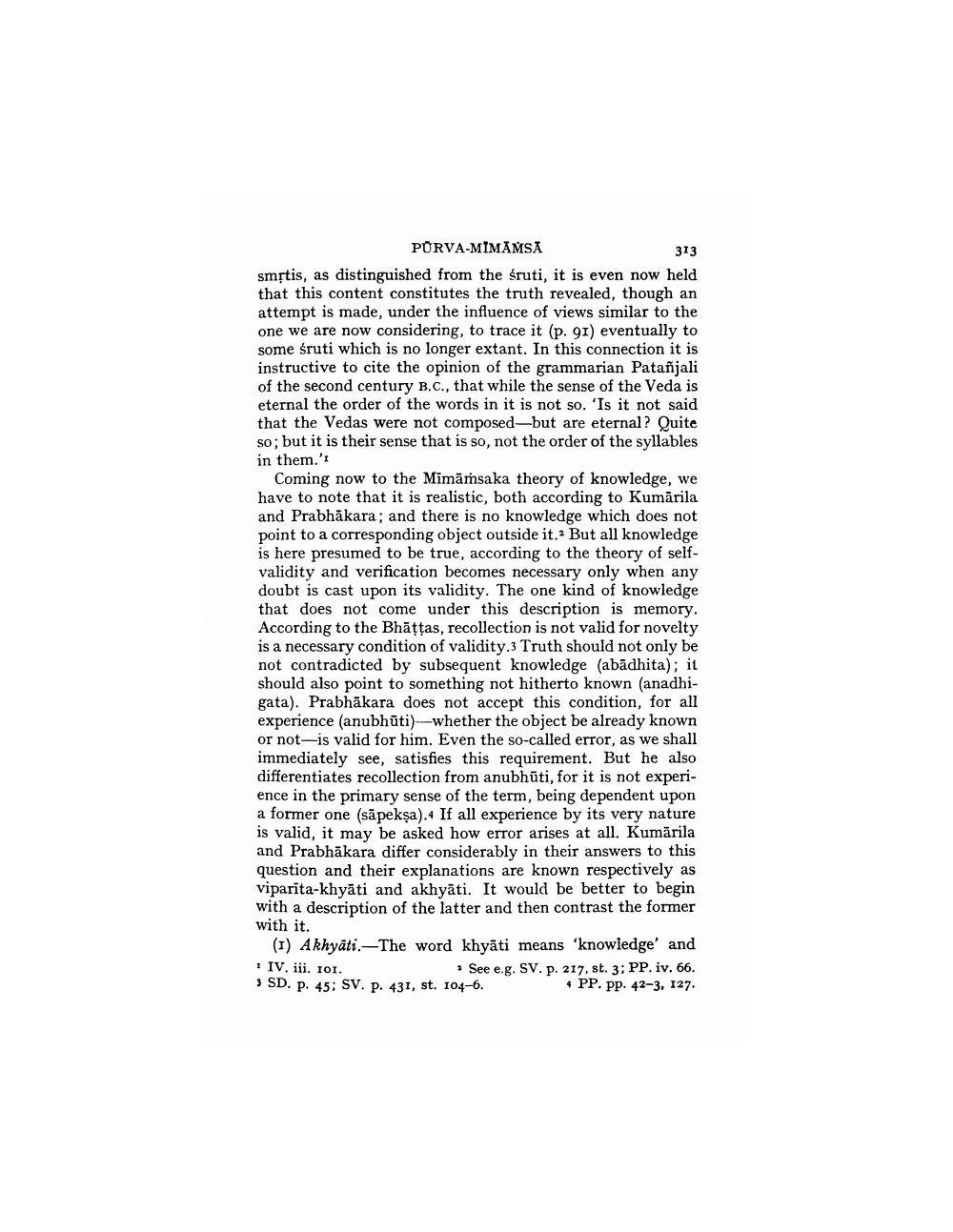________________
PORVA-MIMĀMSA
313 smrtis, as distinguished from the śruti, it is even now held that this content constitutes the truth revealed, though an attempt is made, under the influence of views similar to the one we are now considering, to trace it (p. 91) eventually to some śruti which is no longer extant. In this connection it is instructive to cite the opinion of the grammarian Patañjali of the second century B.C., that while the sense of the Veda is eternal the order of the words in it is not so. 'Is it not said that the Vedas were not composed-but are eternal? Quite so; but it is their sense that is so, not the order of the syllables in them.':
Coming now to the Mimāmsaka theory of knowledge, we have to note that it is realistic. both according to Kumārila. and Prabhākara, and there is no knowledge which does not point to a corresponding object outside it. But all knowledge is here presumed to be true, according to the theory of selfvalidity and verification becomes necessary only when any doubt is cast upon its validity. The one kind of knowledge that does not come under this description is memory. According to the Bhāttas, recollection is not valid for novelty is a necessary condition of validity.3 Truth should not only be not contradicted by subsequent knowledge (abadhita): it should also point to something not hitherto known (anadhigata). Prabhākara does not accept this condition, for all experience (anubhūti)--whether the object be already known or not-is valid for him. Even the so-called error, as we shall immediately see, satisfies this requirement. But he also differentiates recollection from anubhūti, for it is not experience in the primary sense of the term, being dependent upon a former one (sāpeksa).4 If all experience by its very nature is valid, it may be asked how error arises at all. Kumärila and Prabhākara differ considerably in their answers to this question and their explanations are known respectively as viparita-khyāti and akhyāti. It would be better to begin with a description of the latter and then contrast the former with it.
(1) Akhyāti.-The word khyāti means 'knowledge and 1 IV. iii. 101.
See e.g. SV. p. 217, st. 3; PP. iv. 66. 3 SD. p. 45: SV. p. 431, st. 104-6.
• PP. PP. 42-3, 127.




